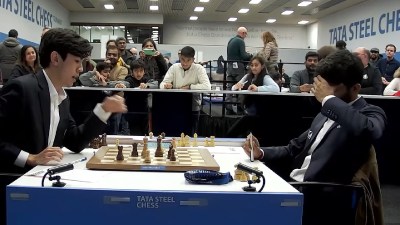Bunty146;s soap bubble
The ongoing soap opera featuring the country8217;s super elite continues to keep the Indian public enthralled. Ajitabh Bachchan, nicknamed ...

The ongoing soap opera featuring the country8217;s super elite continues to keep the Indian public enthralled. Ajitabh Bachchan, nicknamed Bunty, who disappeared from the country after Bofors and a rumoured spat with his famous brother has disclosed that he plans to return to India. In an interview, he proclaimed that it was the Bachchans and not the Gandhis who were at fault for the rift between the two families. His announcement that he is planning to write a biography of the Big B will only further strain their relations.
Ramola Bachchan 8212; whose children continued to be friendly with the Gandhi offspring even after they had cooled with their uncle 8212; has also indicated that she is shifting base to Delhi, suggesting a possible reconciliation with her estranged husband. A new dramatic twist is that a matrimonial alliance between Bunty8217;s daughter and an offspring of the Hindujas could be in the offing.
Advani8217;s premonition
Two days before his trip to Karachi, Advani confided to a well-wisher that his great regret was that a section of the Parivar did not comprehend that the party8217;s ideology had to evolve with the times. He recalled that the socialist leader, Ram Manohar Lohia, had once asked Deen Dayal Upadhyaya, in the 8217;60s whether the Jana Sangh still believed in the concept of 8216;8216;Akhand Bharat8217;8217;. Upadhyaya replied that the party now wanted a subcontinent re-united not by force, as was earlier conceptualised, but by mutual interest on the lines of the European Common Market.
Swami suggested J8217;s secularism
Many BJP leaders blamed L K Advani8217;s speech-writer Sudheendra Kulkarni for his remarks on Jinnah, but the inspiration was actually the late head of the Ramakrishna Mission Swami Ranganathananda. In Kolkata in 2003, Advani, then Deputy Prime Minister, called on the Swami Ranganathananda, whose discourses he has been listening to since he was a student in Karachi. Ranganathananda, who was 94, reminded Advani of Jinnah8217;s speech in Pakistan8217;s Constituent Assembly remarking, 8216;8216;that was truly a secular speech8217;8217;. He asked Advani to send him a copy of the speech from the Parliament House library.
The swami8217;s remark seems to have made a deep impact on Advani. In fact, he referred to it at a condolence meeting for the swami in April this year, which was attended by both Manmohan Singh and I K Gujral. In Pakistan, Advani first brought up the secular side of Jinnah at the Katas Raj temple function. After a hue and cry was raised back home, Advani tried to put his comments on Jinnah in perspective in Karachi with a lengthy explanation, which was faxed to Delhi. But far from mollifying the hardliners in the Parivar, they were further irritated. Particularly as Advani visited Jinnah8217;s mausoleum the same day.
Spinning from Left to right
In the BJP office they wonder how a former Communist like Sudheendra Kulkarni has come to exert so much influence in the party and some even accuse him of being a Trojan horse. An IIT graduate, Kulkarni was a member of the CPIM and deputy editor of the Left leaning Blitz weekly. When Blitz owner R K Karanjia suddenly took a Right turn, so did Kulkarni, and he showed up at the BJP8217;s national council in 1993. Later he worked for the Hindujas.
In 1996, Advani allotted Kulkarni a room in the BJP party office in Delhi and a year later he accompanied Advani on his Swarna Jayanti Yatra. When Vajpayee became prime minister, Kulkarni joined the PMO and rose rapidly, thanks to the confidence Vajpayee reposed in his speech-writing abilities. He returned to the party office after the BJP defeat and was appointed political secretary to the party president and a secretary in the BJP8217;s organisational set-up.
Kulkarni impressed both Advani and Vajpayee by his cerebral approach, even if was responsible for such bloomers as Vajpayee8217;s musings and Advani remarks about 8216;8216;an instrument of the divine.8217;8217; And while Kulkarni may not have raked up the 1947 Jinnah speech, his detractors point out that it was his responsibility as speechwriter to ensure that Advani8217;s remarks were sufficiently nuanced and circumspect. If he had been in sync with the party ideology, he could have warned Advani of the dangers of an intellectual reassessment of a man long on the party8217;s hate list.
- 01
- 02
- 03
- 04
- 05






























